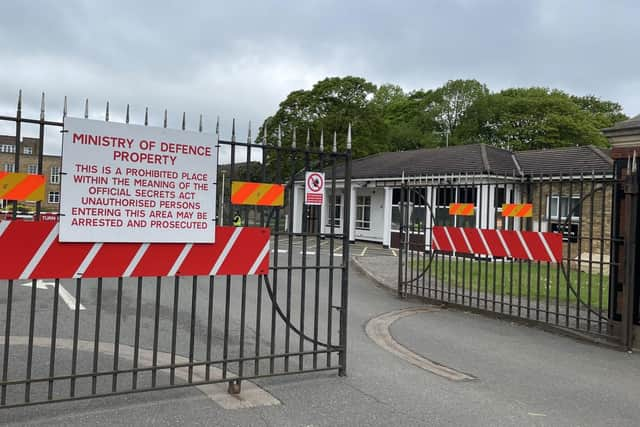What to expect from West Lindsey Council's Scampton hearing
and live on Freeview channel 276
The hearing will determine whether the case can proceed to a full judicial review, potentially halting the plans.
Set for July 12 and 13, the case in London will include testimonies from the council, as well as a local resident.
Advertisement
Advertisement
The Judicial Review would challenge the Home Office decision to use Scampton, claiming they have acted unlawfully by ignoring the potentially £300 million redevelopment plan.


They also believe the decision relies on temporary permitted development rights, which gives permission for much shorter time than housing is expected to be at the site.
Braintree Council in Essex also expected to express its stance on similar plans to house up to 1,700 migrants at RAF Wethersfield.
West Lindsey Council has been here before. In May, the council was unsuccessful in obtaining an urgent injunction from the High Court.
Advertisement
Advertisement
It would have required the Home Office to wait while comprehensive legal challenges to the plans were examined.
Prominent figures in the ongoing fight, including Gainsborough MP Sir Edward Leigh and Labour’s Lincoln nominee Hamish Falconer, were in court to here the disappointing news.
However, it emerged during the hearing that government officials had recommended RAF Scampton was not suitable for housing migrants. Home Secretary Suella Braverman apparently overruled them.
Since then, preparations have since commenced, with site investigators already seen at the location.
Why take action?
Advertisement
Advertisement
Sally Grindrod-Smith, West Lindsey Council director of planning regeneration and communities, said the council had been forced to take the government to court over the dispute.
She said: “The council does not take lightly this application for Judicial Review. However, given the impact of the Home Office plans on our £300 million investment, we have been left with no choice.”
If further legal challenges fail to succeed, the first wave of 200 single men, largely from Afghanistan, Iraq and Iran, is anticipated to arrive in mid-August.
Two main groups continue to campaign against the move, although they differ significantly in their ideologies.
Advertisement
Advertisement
Formed by residents, the Save Our Scampton group has pledged to support the council in its legal action as many have expressed concerns about safety, some have even contemplated leaving the village for good.
Often confused with this politically-neutral campaign is the far-right-led RAF Scampton Real Action Group, which looks to scrutinise the government’s immigration policies at a national level.
What happens if permission is granted?
Should the High Court grant the council permission to apply for a judicial review, the case will advance to a final hearing.
This usually occurs within 35 days of the decision to grant permission. In this case, the defendant, the Home Office, must then file and serve its detailed grounds of resistance, setting out in more detail the basis on which it is defending the claim.
Advertisement
Advertisement
The final judicial review will then ultimately determine whether plans to establish a migrant camp at the former home of the Dambusters can go ahead.
Coun Roger Patterson, council Conservative member for Scampton, believes the council’s case is much stronger than that of Linton-on-Ouse, North Yorkshire, which previously won its judicial review.
What happens if permission is denied?
If the council’s request for permission is denied, plans to house migrants at RAF Scampton are set to proceed for at least three years.
Hampshire-based contractor Serco will be in charge of maintaining the supervision of those housed at the historic site.
Advertisement
Advertisement
The migrant camp is expected to process about 5,000 young men in its first year of operation, though only hosting 2,000 at any one time.
When the plans were first announced in March, immigration minister Robert Jenrick stated the asylum-seekers would be provided with portable buildings, intended to “meet the essential living needs and nothing more”.
The site will be self-contained, but migrants living on the premises will be free to come and go as they please.
The situation would stall Scampton Holdings’ ambitious £300m heritage, enterprise and tourism project, which had the potential to create thousands of highly-skilled jobs.
